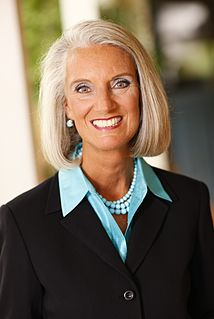A Quote by Norman Schwarzkopf
I believe that forgiving them is god's function, our job is to arrange the meeting.
Related Quotes
In a recent interview, General Norman Schwartzkof was asked if he thought there was room for forgiveness toward the people who have harboured and abetted the terrorists who perpetrated the 9/11 attacks on America. His answer..."I believe that forgiving them is God's function. Our job is simply to arrange the meeting.
What is forgiving? Forgiving is giving up all claim on one who had hurt you and letting go of the emotional consequences of the hurt. How can we do that? It's done at the price of beating back our pride. By nature we are selfish. Forgiving, by definition, is unselfish. Being hurt by another person wounds our pride. Pride stands in the way of forgiving. We cannot forgive without God's help. It might be possible for us to forgive something inconsequential without God's help; but in significant matters, we are unlikely to accomplish anything without God's involvement in the process.
Every day God patiently bears with us, and every day we are tempted to become impatient with our friends, neighbors, and loved ones. And our faults and failures before God are so much more serious than the petty actions of others that tend to irritate us! God calls us to graciously bear with the weaknesses of others, tolerating them and forgiving them even as He has forgiven us.
Forgiving ourselves for all the woulda-shoulda-couldas in life, and sometimes forgiving others for actions that we feel undercut or undermine our good, can be very challenging. But forgiveness of the past and mistakes, our own mistakes as well as the mistakes of others, is imperative if we are to dwell fully in the present and experience the miracles that are only available to the forgiving and loving mind.
Will God ever ask you to do something you are not able to do? The answer is yes--all the time! It must be that way, for God's glory and kingdom. If we function according to our ability alone, we get the glory; if we function according to the power of the Spirit within us, God gets the glory. He wants to reveal Himself to a watching world.
I believe our nation is in deep trouble. We seem to have lost our identity because in many ways we're separated from God. I believe it's imperative that God's people pray as Daniel did, or our nation may unravel morally and spiritually to the point of no return. I believe we desperately need the blessing of God.
Forgiving is love's toughest work, and love's biggest risk. If you twist it into something it was never meant to be, it can make you a doormat or an insufferable manipulator. Forgiving seems almost unnatural. Our sense of fairness tells us people should pay for the wrong they do. But forgiving is love's power to break nature's rule.


































